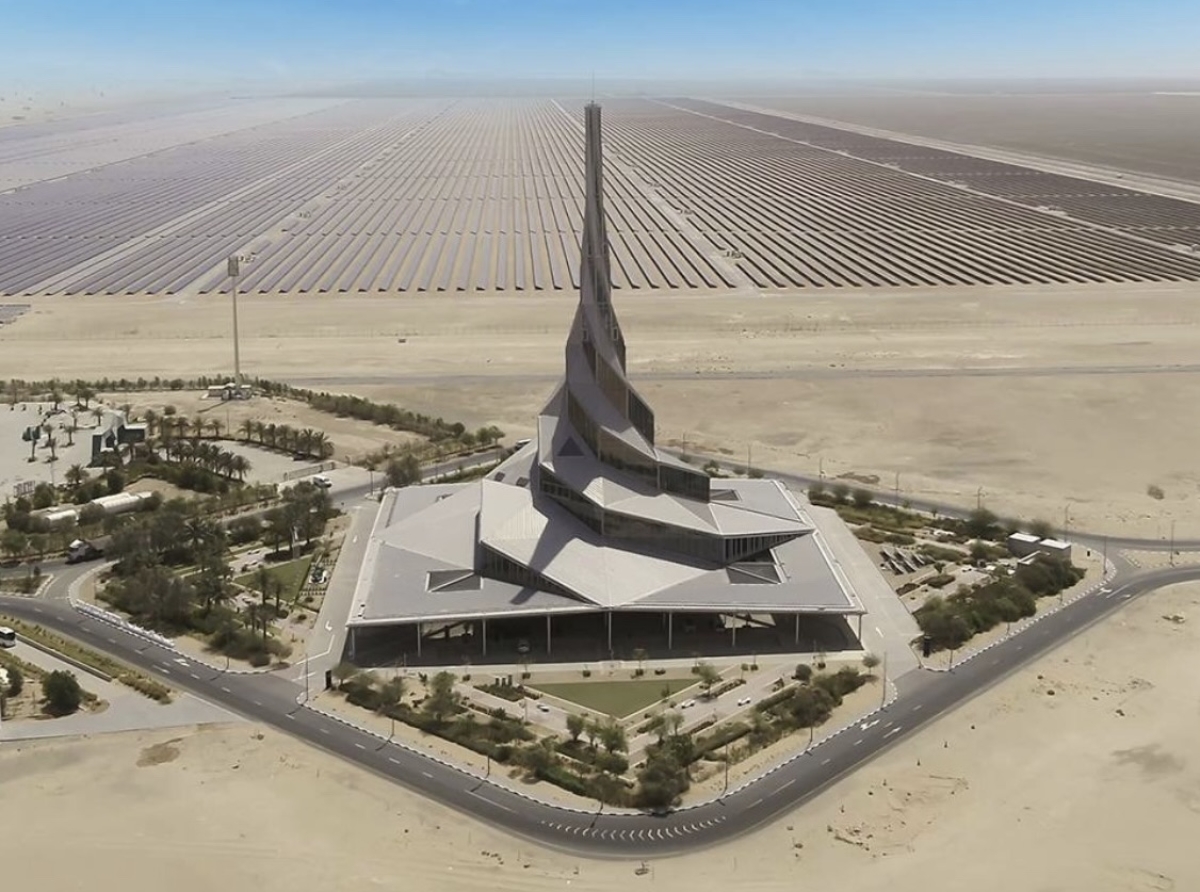Dubai’s Quiet Influence on the Modern Athlete
In the global economy of sport, attention often follows medals and score...
Feb 04, 2026

In the sun-scorched expanse of Saih Al-Dahal, 50 kilometers south of Dubai, the Mohammed bin Rashid Al Maktoum Solar Park hums with activity, its 3.66 gigawatts of photovoltaic panels and concentrated solar power towers generating clean energy for 240,000 homes. This sprawling 77-square-kilometer facility, the world’s largest single-site solar park under the Independent Power Producer (IPP) model, is a cornerstone of the United Arab Emirates’ ambition to redefine itself as a global leader in renewable energy. In 2025, the UAE’s vision extends far beyond its borders, with Dubai-based AMEA Power spearheading solar and wind projects across 11 African nations, backed by the $4.5 billion Africa Green Investment Initiative launched at COP28 in 2023. Yet, as the UAE scales its renewable energy footprint, reliance on Chinese technology for critical components has sparked concerns about supply chain vulnerabilities, even as the emirate sets a global benchmark for sustainable development.
The Mohammed bin Rashid Al Maktoum Solar Park, managed by the Dubai Electricity and Water Authority (DEWA), is a linchpin of the Dubai Clean Energy Strategy 2050, which aims to source 75% of the emirate’s energy from clean sources by 2050. By the end of 2024, the park’s capacity reached 3,660 megawatts (MW) from photovoltaic (PV) and concentrated solar power (CSP) technologies, with an additional 1,000 MW under construction, per DEWA. The sixth phase, 53% complete as of March 2025, has 600 MW operational and will reach 1,800 MW by 2026, powering 540,000 residences and cutting 2.36 million tonnes of carbon emissions annually, according to Zawya. With a planned capacity of 7,260 MW by 2030 and investments of AED 50 billion ($13.6 billion), the park will reduce 8 million tonnes of carbon emissions yearly upon completion, per DEWA. Its third phase, developed by a Masdar-led consortium, set a global record for the lowest solar tariff at 2.99 US cents per kilowatt-hour in 2016, while the sixth phase, with Masdar’s bid of 1.6215 US cents per kWh, continues to drive down costs, per DEWA.
AMEA Power, founded in Dubai in 2016, has emerged as a key player in exporting this expertise to Africa, managing a 6-gigawatt clean energy pipeline across 20 countries, with 2.6 gigawatts in operation or near completion in nations like Egypt, Morocco, and Tunisia, per its 2025 corporate update. In Egypt, AMEA Power commissioned a 500 MW solar PV plant in Aswan in December 2024 and launched a 300 MWh battery energy storage system (BESS) in July 2025, the country’s first utility-scale BESS, financed by the International Finance Corporation, per posts on X. The company also operates a 51.75 MW wind farm in Jordan’s Tafilah Governorate and a 70 MW solar PV project with 4 MWh BESS in Togo, completed in February 2024, per AMEA Power. Its African portfolio includes projects in Burkina Faso, Ivory Coast, Djibouti, and Uganda, targeting underserved markets with decentralized energy solutions, per Renewables in Africa. The UAE’s $4.5 billion Africa Green Investment Initiative, announced at COP28 in Dubai, supports these efforts, channeling funds into renewable projects to address Africa’s electrification gap, where over 600 million people lack access.
The UAE’s broader renewable energy strategy, underpinned by the Net Zero by 2050 Strategic Initiative, integrates solar, wind, nuclear, and hydrogen. The Al Dhafra Solar PV plant in Abu Dhabi, operational since November 2023 with a 2-gigawatt capacity, offers the world’s lowest solar tariff at 1.35 US cents per kWh, per the UAE Embassy. The Barakah Nuclear Power Plant, with four reactors, supplies 25% of the UAE’s electricity, saving 5 million tonnes of CO2 annually, per the Economist Impact. Masdar, Abu Dhabi’s renewable energy company, complements AMEA Power’s efforts, with projects like the 250 MWac solar PV and 63 MW BESS in Uzbekistan and a 300 MW solar plant in Jeddah, Saudi Arabia, per Masdar’s 2025 project portfolio. The UAE’s hosting of COP28 in 2023 elevated its global climate leadership, with 78 environmental initiatives approved, including solar energy regulations and sustainable tourism.
However, the UAE’s reliance on Chinese technology, particularly for solar panels and battery systems, raises supply chain concerns. The Al Dhafra project, developed with China’s Jinko Solar, and AMEA Power’s projects, which use Chinese-manufactured PV panels, reflect this dependency, per Power Technology. Geopolitical tensions and potential U.S. tariffs on Chinese solar components, noted by AGBI, could disrupt supplies, while quality control issues in Chinese-made equipment have occasionally delayed projects, per industry reports. The UAE’s high per-capita carbon footprint—40.31 tonnes in 2009, per Wikipedia—also underscores the urgency of its renewable push, though solar and wind accounted for only 8.3% of electricity in 2023, up from 4.5% in 2022.
Dubai’s 3.7 million residents, 88% expatriates per the Dubai Statistics Center, benefit from a cosmopolitan hub, but rising living costs, noted on X, challenge workers supporting its infrastructure. The Mohammed bin Rashid Al Maktoum Solar Park’s R&D Centre, with its solar-powered desalination plant, drives innovation, testing PV and CSP performance in desert conditions, per C40 Cities. As the UAE expands its renewable footprint in Africa, its model of public-private partnerships, exemplified by DEWA’s collaboration with ACWA Power and Masdar, sets a global standard, though navigating supply chain risks and economic disparities remains critical to sustaining its leadership.
Photo credits: DEWA Instagram.
Disclosure: Dubai Voice enhances the editing process with the help of carefully selected AI tools. These tools provide valuable support without taking over the editing process completely, ensuring that the final product is the result of human creativity and expertise augmented by the benefits of enhanced technology. This article is protected under the copyright of Dubai Voice. Unauthorized reprinting, republishing, or rewriting of this content is strictly prohibited without explicit permission from Dubai Voice. Quotations from this material are permissible provided that a direct link to the full article on Dubai Voice is included.